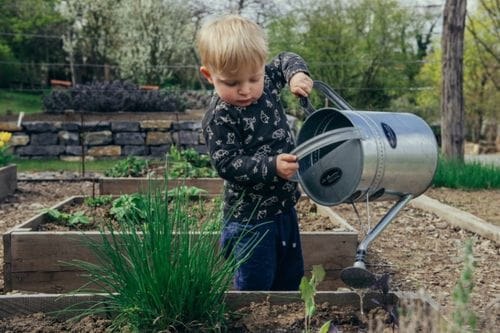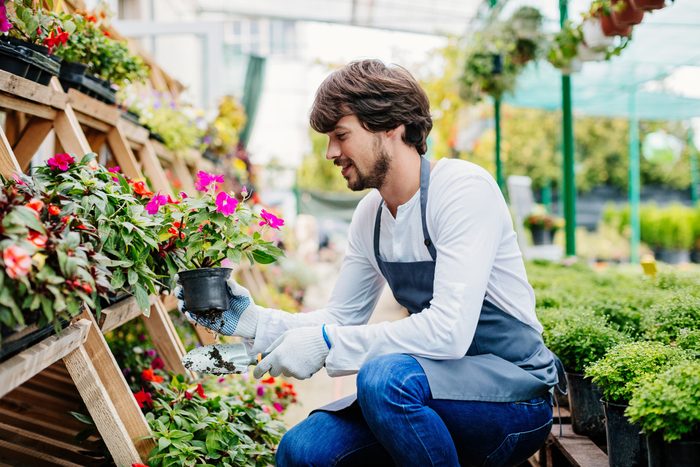Must-Have Gardening Tools for Beginners: A Total Listing for Your Flourishing Yard
Wiki Article
Growing Eco-friendly Thumbs: a Novice's Journey Into the World of Gardening
Are you excited to get your hands dirty and start growing your own yard? Look no further! In this article, we'll take you on a beginner's trip right into the globe of horticulture. You'll find out about selecting the right plants, comprehending soil and compost, and important gardening tools. We'll also teach you sprinkling and feeding methods and exactly how to handle common yard parasites. Obtain prepared to cultivate your green thumb and see your garden prosper!Selecting the Right Plant Kingdoms
1. You require to evaluate your horticulture area and determine the number of plants that will certainly fit comfortably. Since congestion can lead to stunted growth and illness, this action is vital. Measure the measurements of your yard beds or pots and determine the readily available space. Take into consideration the mature dimension of the plants you plan to grow. Some herbs and veggies require more area than others, so it's vital to do your research study.As soon as you have a clear concept of your horticulture room, it's time to pick the appropriate plants. Particular plants grow in complete sunlight, while others favor partial color. This will certainly assist you choose plants that are fit to your certain problems.
If you're new to horticulture, choose for plants that are easy to expand and need minimal upkeep. Select plants that have a much shorter maturation period if you live in an area with a shorter expanding season.
Understanding Dirt and Compost
Soil is the foundation of your garden, giving nutrients, water retention, and assistance for your plants. It is important to have a great understanding of your dirt kind, whether it is sandy, clayey, or fertile, as this will certainly determine the types of plants that will flourish in your garden. Keep in mind, a healthy and balanced and abundant soil is the key to a successful garden, so take the time to comprehend your dirt and include garden compost to guarantee your plants grow.
Crucial Gardening Devices
Now that you understand the relevance of dirt and compost, allow's check out the vital horticulture tools you'll require to cultivate your environment-friendly oasis. Among one of the most fundamental tools you'll need is a garden trowel. This tiny handheld device is excellent for excavating tiny holes, hair transplanting plants, and scooping soil. One more essential device is a garden fork. This sturdy tool is utilized for loosening dirt, separating globs, and turning compost. A great set of horticulture gloves is a must-have to secure your hands from thorns, irritable plants, and dirt. Search for handwear covers that are sturdy, breathable, and offer a great grasp. A yard hose or watering can is necessary for maintaining your plants moistened. Choose a hose pipe with a spray nozzle that enables you to readjust the water circulation and pressure. A tough pair of pruning shears or secateurs is vital for trimming and forming your plants. Try to find shears with a sharp blade and comfy takes care of. A garden rake is beneficial for leveling dirt, getting rid of particles, and spreading out compost. With these necessary devices in your horticulture toolbox, you'll be well-appointed to develop and keep your environment-friendly sanctuary.Watering and Fertilizing Strategies

Taking Care Of Common Garden Vermin
As a beginner garden enthusiast, you might experience typical garden parasites that can ruin your plants. These bugs can range from bugs like beetles, aphids, and caterpillars, to small animals like squirrels and rabbits. It is necessary to be able to deal and recognize with these parasites properly in order to secure your plants and guarantee an effective yard.Among the very first steps in taking care of yard bugs is to regularly evaluate your plants for any type of indicators of infestation. Seek chewed leaves, openings in the vegetation, or the presence of little pests. If you find any kind of pests, it is very important to do something about it right away to avoid them from spreading and triggering additional damages.
There are a number of techniques you can make use of to regulate yard bugs. In addition, there are natural bug control sprays readily available that can aid hinder and remove usual yard parasites.
Bear in mind, avoidance is crucial when it pertains to taking care of yard insects. Keeping your garden clean and free of particles can help in reducing the probability of an invasion. Consistently getting rid of weeds and dead plants can additionally assist get rid of hiding areas for bugs.

Conclusion
Congratulations on finishing your newbie's journey right into the globe of gardening! By picking the right plants, understanding soil and garden compost, using necessary horticulture tools, and grasping watering and feeding techniques, you have established yourself up for success. Don't fail to remember to remain alert in managing common garden bugs to guarantee your plants prosper. With your newly found knowledge and eco-friendly thumbs, your yard will certainly flourish and bring you unlimited happiness and elegance (gardening tools for beginners). Satisfied horticulture!Dirt is the structure of your garden, supplying nutrients, water retention, and assistance for your plants. It is crucial to have a great understanding of home gardening for beginners your dirt type, whether it is sandy, clayey, or loamy, as this will identify the types of plants that will thrive in your yard. Bear in mind, a abundant and healthy and balanced dirt is the essential to a successful garden, so take the time to understand your dirt and include garden compost to ensure your plants flourish.
As a novice gardener, you may run into usual yard insects that can inflict havoc on your plants. It's important to be able to deal and recognize with these bugs successfully in order to secure your plants and guarantee a successful yard.
Report this wiki page